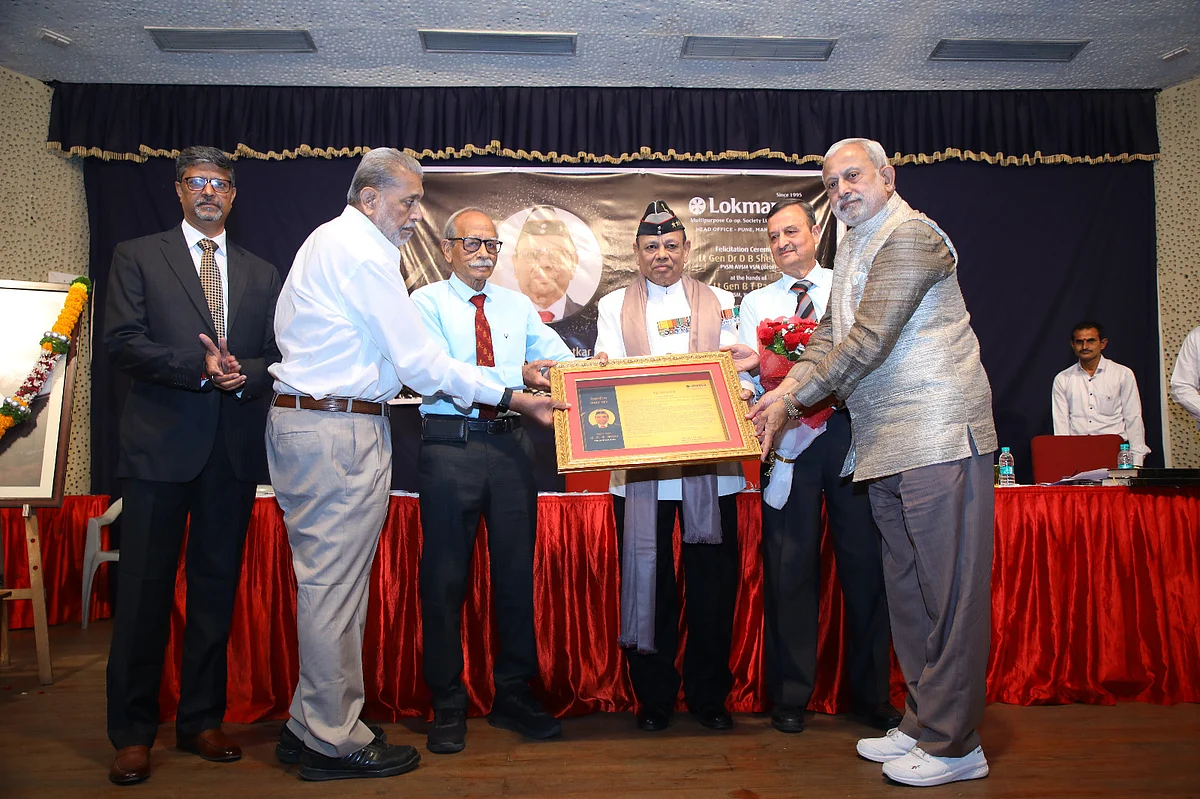Colonel Raymond M. Powell, U.S. Air Force (Retired) is the founder and director of SeaLight, a maritime transparency project launched at the Gordian Knot Center for National Security Innovation at Stanford University. He was in Mumbai to attend a seminar on global security organised by think tank Brahma Research Foundation on Sunday.
His “assertive transparency” initiative has received international acclaim for drawing public attention to China’s maritime gray-zone strategy. It also became the basis for the Philippines’ recent information operations campaign against China’s coercive activities in the South China Sea.
Colonel Powell’s extensive military background includes senior operational, policy and diplomatic roles, including as the U.S. Senior Defense Official/Defense Attaché to Australia from 2017-20, and as the U.S. Air Attaché to Vietnam from 2013-16. He served three Pentagon tours, combat tours in Iraq and Afghanistan, and in a host of other roles across Asia, Europe and the Middle East. He was in Mumbai to attend a seminar on global security organised by think tank Brahma Research Foundation on Sunday.
He spoke exclusively to the FPJ on Tuesday. Excerpts from an interview:
Despite the growing ties between India and the U.S., a strong element of trust deficit still persists between the two democracies. Please comment.
During the Cold War, the U.S. attention was focussed on the USSR and it took on Pakistan and other countries as its allies to counter Moscow. India had its own compulsions in being close to the USSR and it pursued a policy of non-alignment. It did not want to cosy up to any one big power. The U.S. has not entirely adjusted to the new reality. But what is important is that now both the nations have a common interest in containing China and have hence become much closer to each other than at anytime in the past.
How serious is the threat posed by China?
China is nursing ambitions of a revisionist power wanting to dominate the world. This poses a danger to not only to the U.S. and India, but to several other countries. The U.S. is now consciously giving more importance to India which has a crucial role in containing Chinese expansionism. Not only at the strategic level, even at the level of business the U.S. is now diverting supply chains and manufacturing to India. China poses a threat both in the short term and in the long run for international peace and the sovereignty of nations. Beijing is using its financial muscle to influence small nations and through projects like the Belt & Road Initiative it is planning to eat into the sovereignty of nations. That is why the U.S. offers an alternative to these nations. On the cyber front too, China is known to hack into computers in other nations and steal vital data. The need is to express outrage against the vicious tactics being employed by China to enlarge its spheres of influence. Taiwan could be a flash point, but the U.S. is committed to ensure the independence of that nation. In southeast Asia too China is building artificial islands and posting a threat to nations in that region. But countries like the Philippines are hitting back.

Does India's romance with non-alignment pose an irritant in further deeping Indo-U.S. ties? There is this saying that those who stand on the middle of the road get run over.
One advantage of non-alignment is that it gives a nation leverage to deal with large power blocs. May be this is what India is doing. But the ground reality has changed since the Cold War days and hence there is a new dynamic to ties between Washington DC and New Delhi.
The Indo-U.S. Nuclear Treaty has effectively put a cap on India's nuclear programme. India has not been able to conduct a single nuclear test ever since it signed the treaty. In the absence of testing, India does not know if its nuclear weapons will deliver necessary results in case of an emergency. Please comment.
The nuclear deal was entered into as a part of larger efforts to restrict nuclear proliferation. The less the number of nuclear-armed states the better it is for world peace. If nuclear proliferation by states like Iran and other unstable regimes go unchecked, then it will have grave implications for the global security situation.
How stable is China internally?
It has an autocratic regime which politicises everything under the sun. The Chinese government need to worry about threats from its own people who are controlled by the Communist regime in every which way.








